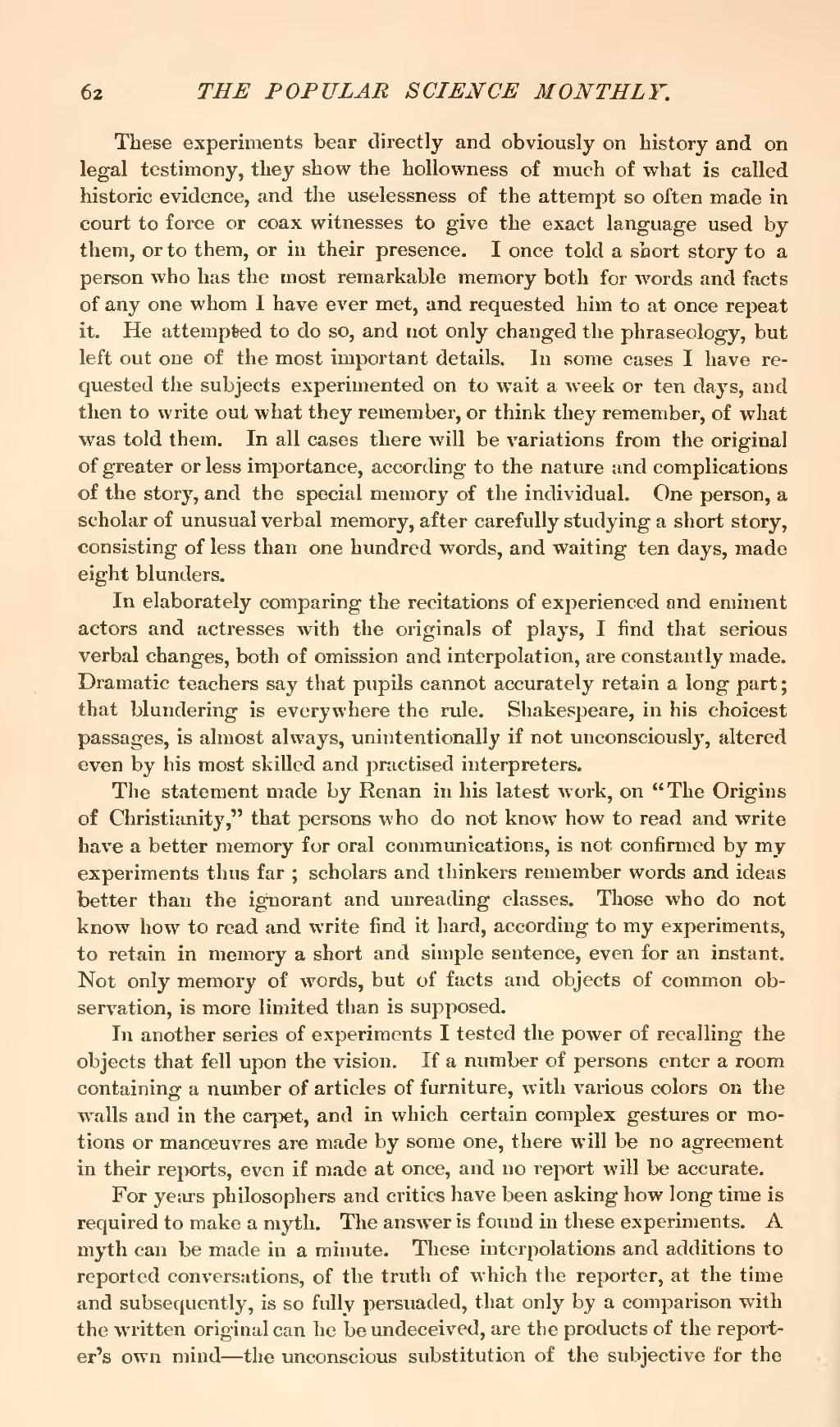These experiments bear directly and obviously on history and on legal testimony, they show the hollowness of much of what is called historic evidence, and the uselessness of the attempt so often made in court to force or coax witnesses to give the exact language used by them, or to them, or in their presence. I once told a short story to a person who has the most remarkable memory both for words and facts of any one whom I have ever met, and requested him to at once repeat it. He attempted to do so, and not only changed the phraseology, but left out one of the most important details. In some cases I have requested the subjects experimented on to wait a week or ten days, and then to write out what they remember, or think they remember, of what was told them. In all cases there will be variations from the original of greater or less importance, according to the nature and complications of the story, and the special memory of the individual. One person, a scholar of unusual verbal memory, after carefully studying a short story, consisting of less than one hundred words, and waiting ten days, made eight blunders.
In elaborately comparing the recitations of experienced and eminent actors and actresses with the originals of plays, I find that serious verbal changes, both of omission and interpolation, are constantly made. Dramatic teachers say that pupils cannot accurately retain a long part; that blundering is everywhere the rule. Shakespeare, in his choicest passages, is almost always, unintentionally if not unconsciously, altered even by his most skilled and practised interpreters.
The statement made by Renan in his latest work, on "The Origins of Christianity," that persons who do not know how to read and write have a better memory for oral communications, is not confirmed by my experiments thus far; scholars and thinkers remember words and ideas better than the ignorant and unreading classes. Those who do not know how to read and write find it hard, according to my experiments, to retain in memory a short and simple sentence, even for an instant. Not only memory of words, but of facts and objects of common observation, is more limited than is supposed.
In another series of experiments I tested the power of recalling the objects that fell upon the vision. If a number of persons enter a room containing a number of articles of furniture, with various colors on the walls and in the carpet, and in which certain complex gestures or motions or manoœvres are made by some one, there will be no agreement in their reports, even if made at once, and no report will be accurate.
For years philosophers and critics have been asking how long time is required to make a myth. The answer is found in these experiments. A myth can be made in a minute. These interpolations and additions to reported conversations, of the truth of which the reporter, at the time and subsequently, is so fully persuaded, that only by a comparison with the written original can he be undeceived, are the products of the reporter's own mind—the unconscious substitution of the subjective for the

